
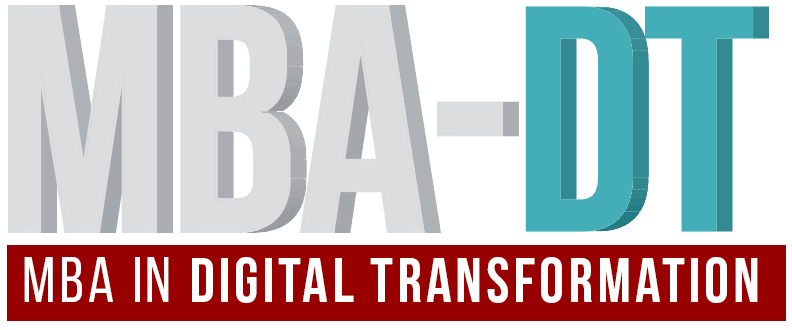

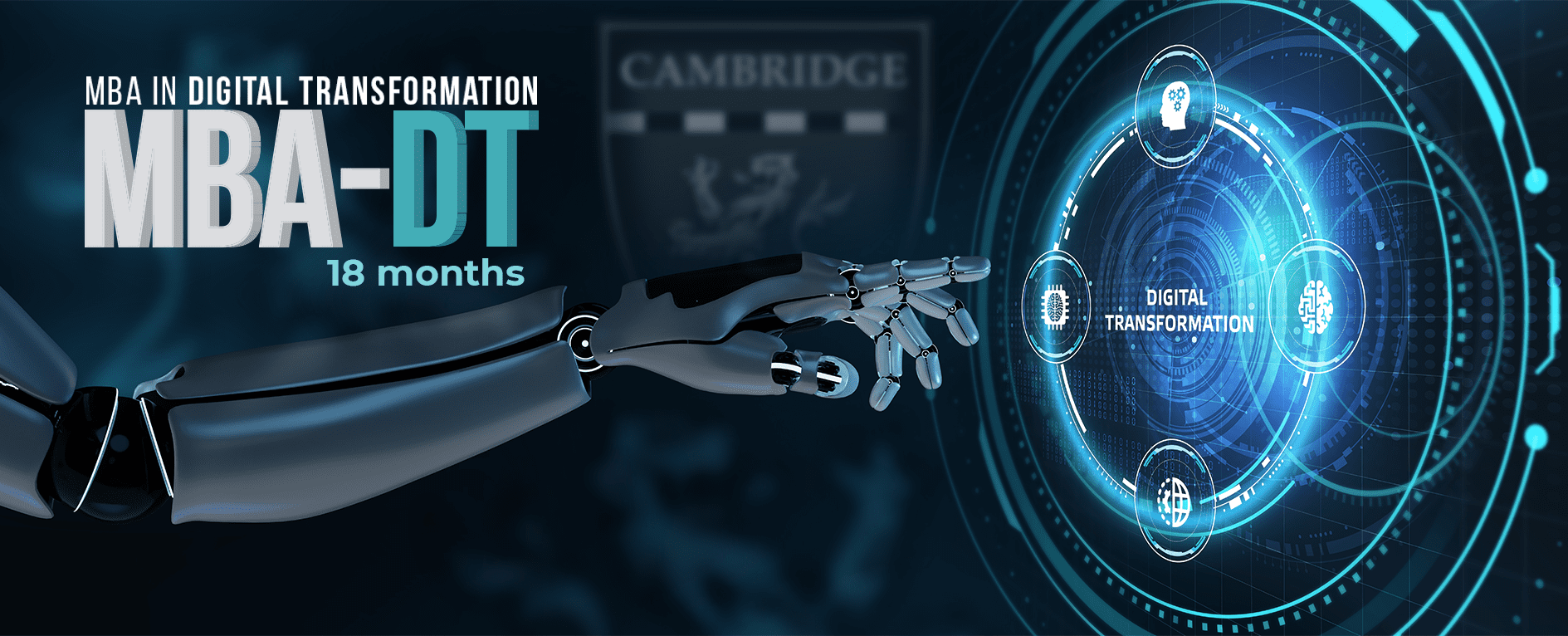
Overview
The Master Degree with major in Digital Transformation (MBA-DT) is an innovative educational model of Digital Transformation offered via the Department of Business Innovation &Digital Transformation (BIDT) at the Albert Schweitzer School of Management in CambridgeCorporate University. Via an intensive, innovative futuristic curriculum and delivering methodology, students will master the world of Digital Transformation.
Innovation Management is a strategic activity that isn’t necessarily needed to implement thoroughly for every company. Most large companies have included structured processes that include administrative stages to following the (large number of) projects that are in progress and to be able to follow-up on them and calculate the effect of innovation management in general. However, for smaller companies, that is not general practice: having such a formal process in place simply doesn’t weigh up to cost efficiencies will generate. But for them, innovation management is just as important, but they rather use a toolkit than a formal process.
The innovation process describes the systematic conversion of existing and/or new findings into marketable solutions, from idea generation and idea evaluation to implementation and successful market launch. It is also important to discard ideas with little future potential in good time to make targeted use of R&D resources and focus innovation activities on promising innovations.
Design Thinking Empathise, Define, Ideate, Prototype, and Test
Design thinking is a non-linear, iterative process that teams use to understand users, challenge assumptions, redefine problems and create innovative solutions to prototype and test.Involving five phases—Empathise, Define, Ideate, Prototype, and Test—is most helpful in tacklingill-defined or unknown problems.
Design thinking is a framework for innovation based on viewing problems or needs from the user’s perspective. Because this human-centered approach demands a thorough understanding of what your customers both think and feel, the design thinking process requires you first to empathize with the people for whom you’re trying to design new solutions. Similar to the agile development framework, design thinking represents a non-linear approach to innovation, driven by trying to empathize with users, testing ideas, analyzing feedback, and continuously rethinking and retooling your plans.
Design thinking is a non-linear, iterative process that teams use to understand users, challenge assumptions, redefine problems and create innovative solutions to prototype and test.Involving five phases—Empathise, Define, Ideate, Prototype, and Test—is most helpful in tacklingill-defined or unknown problems.
Design thinking is a framework for innovation based on viewing problems or needs from the user’s perspective. Because this human-centered approach demands a thorough understanding of what your customers both think and feel, the design thinking process requires you first to empathize with the people for whom you’re trying to design new solutions. Similar to the agile development framework, design thinking represents a non-linear approach to innovation, driven by trying to empathize with users, testing ideas, analyzing feedback, and continuously rethinking and retooling your plans.
Who developed the Digital
Transformation (MBA-DT)
Program?
The (MBA-DT) with major in Digital Transformation program was developed by talented faculty and thought-leaders at the Department of Business Innovation and Digital Transformation (BIDT)at the Albert Schweitzer School of Management (ASSM) in Cambridge Corporate University. Each module was created by CCU scholars, researchers, and corporate teams, ensuring that a range of corporate design thinking perspectives is integrated into the course material.

Who developed the Digital
Transformation (MBA-DT)
Program?
The (MBA-DT) with major in Digital Transformation program was developed by talented faculty and thought-leaders at the Department of Business Innovation and Digital Transformation (BIDT)at the Albert Schweitzer School of Management (ASSM) in Cambridge Corporate University. Each module was created by CCU scholars, researchers, and corporate teams, ensuring that a range of corporate design thinking perspectives is integrated into the course material.

Program Structure
The MBA Program with a major in Digital Transformation consists of 8 modules representing the program's course-track; each Module lasts for 6 weeks and values 15 academic credits. This includes the Foundation Module (MBA-DT410), which covers, among other subjects, theAcademic and Technical Writing (ATW) course offered under the supervision of the Yvon Pfeifer Writing(YWC) at the University.
The MBA Program with a major in Digital Transformation consists of 8 modules representing the program's course-track; each Module lasts for 6 weeks and values 15 academic credits. This includes the Foundation Module (MBA-DT410), which covers, among other subjects, theAcademic and Technical Writing (ATW) course offered under the supervision of the Yvon Pfeifer Writing(YWC) at the University.
The MBA-DT Course Track lasts for (48 weeks).
The MBA-DT Thesis/Project lasts for (24 weeks).
The MBA-DT Program can be completed in an average of 18 months.
The following are some key objectives of the Program :
Upon completion of the Program, students will learn to
• Get the right mix of business intelligence and digital skillsets
• Develop new thinking and insights into how to lead and thrive in the digital era
• Manage digital business processes and acquire the knowledge and skills needed to support digital transformation initiatives
• Develop an understanding of different innovation processes and platforms and their usage for digital transformation.
• Learn different innovation models for different situations and industries for digital transformation.
• Learn fundamentals of design thinking and idea generation.
• Develop a deep understanding of how major frontier technologies work, as well as their business, economic and social impacts
• Gain a competitive edge in the digitalization or digital transformation environments
• Obtain the right skills to become future leaders and executives, being able to manage both people and machines, as well as business and technology staff
• Manage digital business processes and acquire the knowledge and skills needed to support digital transformation initiatives
• Be able to hold different roles and career opportunities at the intersection of business and frontier technologies

The Program
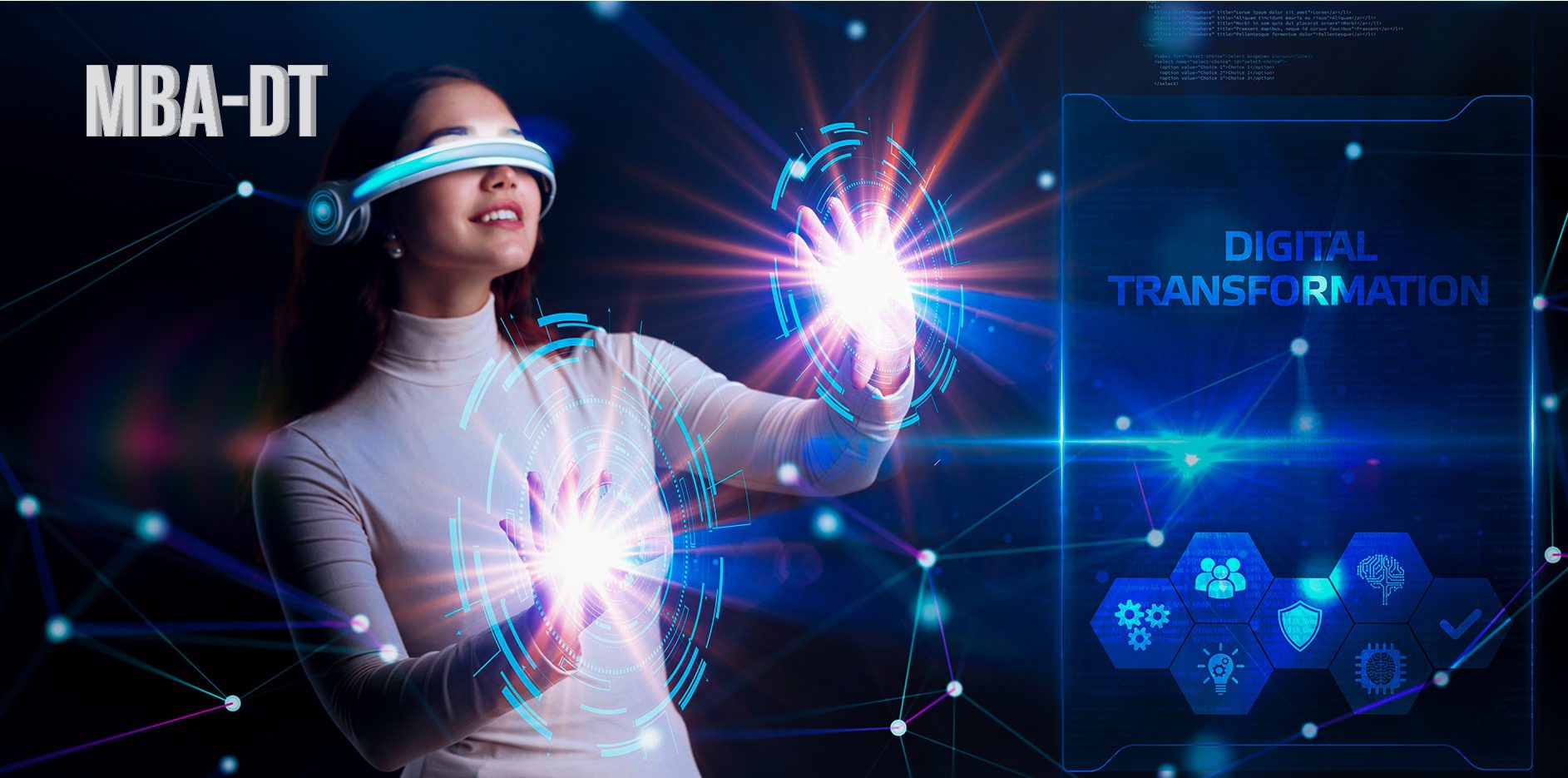
Introduction and Orientation
This two-week introduction is an essential and compulsory part of the MBA Program atCCU and prepares the participants for the program's very different environment and structure. It does not award any academic credits, but it provides :
An introduction to the program and the faculty.
• Advice and practice in accessing and using the program tools and computer lab.
• Guidance on study skills and on preparing for this particular program.
• Guidance on the case study model and the psychology track.
• Practicing the CCU innovation system, idea generator workshops, and creative thinking lab.
• Individual psychology and personality analysis interviews.
• Introduction to the CCU corporate model of education.
• During the two weeks, the program committee works very closely with the students to gain a deep understanding of the participants' mental map, creative thinking skills, knowledge, and information connected to the program structure and subjects.
The Modules
Foundation Module (6 weeks)
The foundation module includes courses that aim at providing participants with the solid base required to start the MBA journey at Cambridge Corporate University; subjects include:
• Academic and Technical Writing (ATW)
• Case Study structure and analysis
• Time Management (TM)
• Business Communication(BC)
• Academic Guide to Referencing and Bibliography
• Business Innovation and Digital Transformation
• The CCU MBA Track
Please notice that the number of subjects and spectrum is based on the program you are enrolled in.

Program Structure
MBA Crowd Innovation Core Modules (4 Modules)
( each lasts 6 weeks 15 credits)
Foundation Module (FM)
Balanced Score Card for Digital Transformation ( BSC-DT).
Change Management & Business Transformation in the Digital Age (CMBT)
Financial Management and Digital Transformation ( (FMCI)
MBA Crowd Innovation Specialty Modules (4 Modules)
( each lasts 6 weeks 15 credits)
Corporate Digital Transformation and Innovation Process
Corporate Digital Transformation and Innovation Leadership, Culture and Environment
Corporate Digital Transformation & Innovation Strategy
Corporate Digital Transformation (DX) and Innovation
MBA Crowd Innovation Specialty Modules
( each lasts 6 weeks 15 credits)
Module 1 (DTIP/MBA710)
Module Description
The innovation process describes the systematic conversion of existing and/or new findings into marketable solutions, from idea generation and idea evaluation to implementation and successful market launch. It is also essential to discard ideas with little future potential in good time to make targeted use of R&D resources and focus innovation activities on promising innovations.
Design thinking is a non-linear, iterative process that teams use to understand users, challenge assumptions, redefine problems and create innovative solutions to prototype and test. Involving five phases—Empathize, Define, Ideate, Prototype, and Test—is most useful for tackling ill defined or unknown problems. Design thinking is a framework for innovation based on viewing problems or needs from the user’s perspective. Because this human-centered approach demands a thorough understanding of what your customers both think and feel, the design thinking process requires you first to empathize with the people for whom you’re trying to design new solutions. Similar to the agile development framework, design thinking represents a non-linear approach to innovation, driven by trying to empathize with users, testing ideas, analyzing feedback, and continuously rethinking and retooling your plans.
Module Description
The innovation process describes the systematic conversion of existing and/or new findings into marketable solutions, from idea generation and idea evaluation to implementation and successful market launch. It is also essential to discard ideas with little future potential in good time to make targeted use of R&D resources and focus innovation activities on promising innovations.
Design thinking is a non-linear, iterative process that teams use to understand users, challenge assumptions, redefine problems and create innovative solutions to prototype and test. Involving five phases—Empathize, Define, Ideate, Prototype, and Test—is most useful for tackling ill defined or unknown problems. Design thinking is a framework for innovation based on viewing problems or needs from the user’s perspective. Because this human-centered approach demands a thorough understanding of what your customers both think and feel, the design thinking process requires you first to empathize with the people for whom you’re trying to design new solutions. Similar to the agile development framework, design thinking represents a non-linear approach to innovation, driven by trying to empathize with users, testing ideas, analyzing feedback, and continuously rethinking and retooling your plans.
TOPICS COVERD IN THIS MODULE INCLUDE
• Incremental Innovation
• Disruptive Innovation
• Business Innovation Model
• Innovation Culture
• Innovation Management
• Innovation platforms
• Digital Technologies
• Big Data & Business Analytics
• Digital Transformation & Business Strategy
• The Process of Digital Transformation
• Digital Business Models
• Technology and Policy
• Business Thinking and Digital Economy
• Agile Management and Innovation
• Digital Organization Capabilities
• Digital Legal, Policy and Ethical Issues
• Innovation platforms and national policy
• Impact of innovation platforms
• Digital business models and strategies
• Digital operations
• Artificial intelligence and business applications

Module 2 (DTIL/MBA720)
Corporate Digital Transformation and Innovation Leadership,Culture and Environment
Module Description
Corporate Digital Transformation and Innovation Leadership, Culture, and Environment Module are specifically designed to help participants prepare for key roles in business innovation management, allowing them to meet the increasingly important yet complex business challenges related to digital transformation and frontier technologies.
Technology also creates new opportunities, challenges, and rules of the game. In this course, we will reflect on the challenges and possibilities available. We will look at leadership cases at the individual and organizational levels. Students will learn how to apply processes, tools, and frameworks and illustrate ways to view and handle various potential leadership scenarios. As leadership is changing, companies are also evolving and adapting to a new and transforming business landscape. This is much more than a traditional change-management project. It is about leading the company into a new position in the marketplace.
This module trains students to develop skillsets in recognizing opportunities, leveraging resources, and understanding work's context with innovative thinking. The module prepares participants to innovate within any organization and to start their own businesses. A Way toDevelop an Effective, Authentic Leadership Style This module equips students with the tools needed to develop a leadership style that is effective, authentic, and sustainable in today's times.Via identifying five basic characteristics needed to become an effective leader, students learn how to acquire them.
By the end of this module, participants will develop the following characteristics
(1) Self-Awareness (2) The Burn to Lead.
(3) The Ability to Create Vision (4) People Skills (5)The Edge.
These personality traits are essential for effective leadership in the digital age.
The module aims to equip students with an understanding of the main issues in leading innovation and an appreciation of the relevant skills needed to lead organizational innovation at both strategic and operational levels.
Module Description
Corporate Digital Transformation and Innovation Leadership, Culture, and Environment Module are specifically designed to help participants prepare for key roles in business innovation management, allowing them to meet the increasingly important yet complex business challenges related to digital transformation and frontier technologies.
Technology also creates new opportunities, challenges, and rules of the game. In this course, we will reflect on the challenges and possibilities available. We will look at leadership cases at the individual and organizational levels. Students will learn how to apply processes, tools, and frameworks and illustrate ways to view and handle various potential leadership scenarios. As leadership is changing, companies are also evolving and adapting to a new and transforming business landscape. This is much more than a traditional change-management project. It is about leading the company into a new position in the marketplace.
This module trains students to develop skillsets in recognizing opportunities, leveraging resources, and understanding work's context with innovative thinking. The module prepares participants to innovate within any organization and to start their own businesses. A Way toDevelop an Effective, Authentic Leadership Style This module equips students with the tools needed to develop a leadership style that is effective, authentic, and sustainable in today's times.Via identifying five basic characteristics needed to become an effective leader, students learn how to acquire them.
By the end of this module, participants will develop the following characteristics
(1) Self-Awareness (2) The Burn to Lead.
(3) The Ability to Create Vision (4) People Skills (5)The Edge.
These personality traits are essential for effective leadership in the digital age.
The module aims to equip students with an understanding of the main issues in leading innovation and an appreciation of the relevant skills needed to lead organizational innovation at both strategic and operational levels.
TOPICS COVERD IN THIS MODULE INCLUDE
• Introduction to Entrepreneurial Leadership
• Understanding Leadership Theories
• Leading with Innovation – What Leaders Need to Know
• Measuring Impact and Data-Driven Decision-Making
• Embarking on the Entrepreneurial Path
• Creating a Breakthrough Solution
• Measuring Impact and Data-Driven Decision-Making
• Entrepreneurial Leadership Process:
• Developing Entrepreneurial Leadership Skills
• Challenges for Entrepreneurial Leadership in Organization
• Transformational Leadership Characteristics• Leadership Innovation Culture
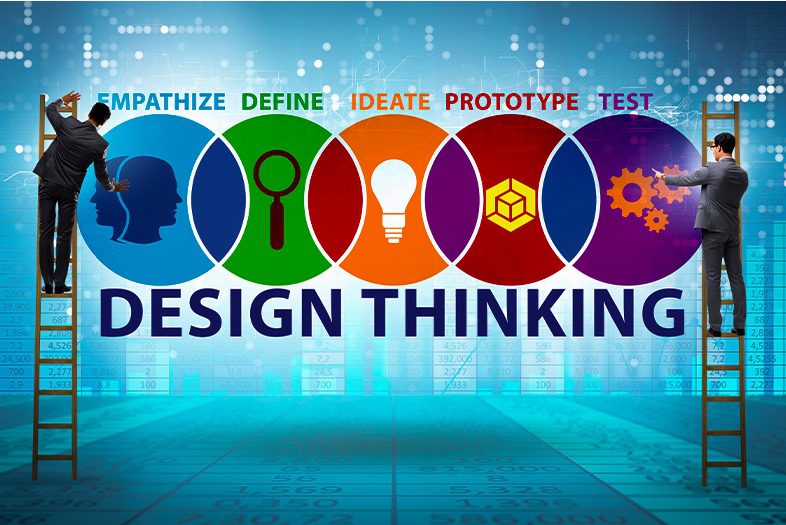
Module 3 (DTIL/MBA730)
Corporate Digital Transformation & Innovation Strategy
Module Description
During this Corporate Digital Transformation and Innovation Management Strategy module, students will draw on real-world examples of B2B and B2C firms that have transformed business through digital strategy. Participants will learn to take advantage of the latest digital technologies and how these can help you transform your business in the face of digital disruption, with particular focus on the role of digital platforms, removing technological roadblocks, and leveraging your existing assets.
Ambitious digital-driven startups are creating and cornering new markets in every sector. And yet, most legacy businesses continue to operate by old play-books. Most are not keeping pace with the changes in their industry, let alone leading the way.
Today firms are now establishing market leadership by mastering digital innovation. Amazon is as much a retailer and supply chain powerhouse as it is a digital innovator. Similarly, the Netflix business model relies heavily on continuously building and enhancing digital products and services to compete against incumbents in the entertainment industry.
This module addresses the challenges and opportunities posed by digital innovation and transformation within an organization. It combines the world-class expertise of both schools on innovation, entrepreneurship, and digitalization.
However, these changes also create immense opportunities, and the tools to prosper during the age of digital disruption are accessible and available. Drawing on research that uncovers the fundamentals of digital strategy, leadership and innovation, Leading Digital Transformation and Innovation provides an integrated view of leading digital transformation and innovation.
Module Description
During this Corporate Digital Transformation and Innovation Management Strategy module, students will draw on real-world examples of B2B and B2C firms that have transformed business through digital strategy. Participants will learn to take advantage of the latest digital technologies and how these can help you transform your business in the face of digital disruption, with particular focus on the role of digital platforms, removing technological roadblocks, and leveraging your existing assets.
Ambitious digital-driven startups are creating and cornering new markets in every sector. And yet, most legacy businesses continue to operate by old play-books. Most are not keeping pace with the changes in their industry, let alone leading the way.
Today firms are now establishing market leadership by mastering digital innovation. Amazon is as much a retailer and supply chain powerhouse as it is a digital innovator. Similarly, the Netflix business model relies heavily on continuously building and enhancing digital products and services to compete against incumbents in the entertainment industry.
This module addresses the challenges and opportunities posed by digital innovation and transformation within an organization. It combines the world-class expertise of both schools on innovation, entrepreneurship, and digitalization.
However, these changes also create immense opportunities, and the tools to prosper during the age of digital disruption are accessible and available. Drawing on research that uncovers the fundamentals of digital strategy, leadership and innovation, Leading Digital Transformation and Innovation provides an integrated view of leading digital transformation and innovation.
TOPICS COVERD IN THIS MODULE INCLUDE
• Strategic Foundations
• Strategic Position and Strategic Choices
• Managing Strategic Change
• Innovation Strategy Planning Process
• Management of Technology and Innovation
• Innovation: Planning, Implementation, Evaluation, and Control
• Networks and Communities of Innovators
• The Management of Research and Development
• Strategy Planning Process: Assess, Design, Build, and Manage

Module 4 (DTDI/MBA740)
Corporate Digital Transformation (DX) and Innovation
Module Description
Although disruption has long been a threat for some industries, the rise of digital technologies has accelerated the pace of disruption in virtually every industry, creating immense ambiguity and unease. Meanwhile, uncertainty continues to accelerate in the broader business environment as the rate at which new technologies emerge increases exponentially - all while competition becomes increasingly fierce. The dominance of established leaders has never been more under threat.
However, these changes also create immense opportunities, and the tools to prosper during the age of digital disruption are accessible and available. Drawing on research that uncovers the fundamentals of digital strategy, leadership, and innovation, Leading Digital Transformation andInnovation provides an integrated view of leading digital transformation and innovation.
Building on Three digital views - the strategic view, the organizational view, and the innovation view - Leading Digital Transformation and Innovation provides a comprehensive suite of tools to understand and lead your way through a digital transformation. Digital Innovation andTransformation is designed to equip students to confidently help conceive, lead and execute digital innovation initiatives and develop new business models for existing and insurgent organizations.
Module Description
Although disruption has long been a threat for some industries, the rise of digital technologies has accelerated the pace of disruption in virtually every industry, creating immense ambiguity and unease. Meanwhile, uncertainty continues to accelerate in the broader business environment as the rate at which new technologies emerge increases exponentially - all while competition becomes increasingly fierce. The dominance of established leaders has never been more under threat.
However, these changes also create immense opportunities, and the tools to prosper during the age of digital disruption are accessible and available. Drawing on research that uncovers the fundamentals of digital strategy, leadership, and innovation, Leading Digital Transformation andInnovation provides an integrated view of leading digital transformation and innovation.
Building on Three digital views - the strategic view, the organizational view, and the innovation view - Leading Digital Transformation and Innovation provides a comprehensive suite of tools to understand and lead your way through a digital transformation. Digital Innovation andTransformation is designed to equip students to confidently help conceive, lead and execute digital innovation initiatives and develop new business models for existing and insurgent organizations.
This module is designed for mid or senior-level managers who need a strategy to lead your organization through a sea of massive disruption. Leaders who strive to be more proactive in implementing new ideas, staying ahead of the competition, and aligning their people, data, and technology are prime candidates. Participants may be leaders of a functional department, head of a business unit or region, or have general management responsibilities. Since all industries are vulnerable to some manner of disruption, all industries can benefit from this hands-on experience.The module might also culminate with a capstone project where participants create an action plan for a challenge at an appropriate level for their role or responsibility.
TOPICS COVERD IN THIS MODULE INCLUDE
• Digital Transformation and Innovation
• Idea development: create and implement innovative ideas
• Digital Innovation and Innovation: From plan to product, processes, automation
• Digital Transformation and Innovation strategy
• Creating and sustaining an innovation culture
• Corporate innovation capstone assessment

CCU LEARNING MODEL
Cambridge Corporate University's learning model is unique, innovative, digital, transformative, and live. It is the CCU learning model that educates participants about the futuristic model of Crowd Innovation via an artistic Online Learning Model.
It is only at CCU that the online portal is a real lecturing hall, where the instructor interacts face to face with students from different countries around the world.The CCU-Learning model offers a unique opportunity for industry professionals, entrepreneurs, and researchers to become part of the Crowd Innovation model at Cambridge CorporateUniversity.
Cambridge Corporate University's learning model is unique, innovative, digital, transformative, and live. It is the CCU learning model that educates participants about the futuristic model of Crowd Innovation via an artistic Online Learning Model.
It is only at CCU that the online portal is a real lecturing hall, where the instructor interacts face to face with students from different countries around the world.The CCU-Learning model offers a unique opportunity for industry professionals, entrepreneurs, and researchers to become part of the Crowd Innovation model at Cambridge CorporateUniversity.
On-Campus – Online
Cambridge Corporate University is the World's Leading Corporate Institute of higher education, where most of our programs are offered entirely online. CCU is the land of futurists, where we created our own digital age and innovative learning culture ahead from the world, and it became part of our history and culture.
At CCU, you have the option to complete your degree on campus in Switzerland, on one of our international campuses available in 19 countries worldwide (CCU Corporate Center Programs), or via the CCU live model of online education. The CCU online learning model appeals to busy professionals' needs in the digital age and offers one of the most informative and challenging education models. Students interact with faculty, executives, and colleagues from different cultures, industries, and research setups via the various CCU online portals.


MBA-DT Study that fits your life
At CCU Switzerland, you can complete your study and earn your prestigious degree while keeping your job and maintaining your income. The flexible study model in our classes allows students to plan their time and enjoy the corporate mode of study and achievement.
CCU MBA DT Innovative Approach
THE INNOVATIVE APPROACH OF the CCU online learning model is no different from other university techniques; it is always futuristic, innovative, and unique. CCU is an organisation that chooses innovation as its way of life and offers one of the first-ever known innovation certifications and credentials, the 'Certified Professional Innovator' CPI, in 1983.
This approach reflects on the way our students, researchers, and participants learn and interact via a set of structured tools and techniques:
• The MBA DT Live Lecturing Model
• The MBA DT Scenario-CaseStudy
• The MBA DT Discussion Groups and Workshops
• The MBA DT Alumni and Friends Networking Portal
• The MBA DT Questions Articles Assignment Technique
• The MBA DT Internship Program
• The MBA DT ALSKLS Model
• The MBA DT AI Learning Tools
CCU THE Home of Innovators

At CCU, innovation is a way of life. Cambridge Corporate University is known as the 'Home ofInnovators' for more than four decades. This innovative-based culture and structure reflect on the program teaching and delivering methodology, where a new hub of creative thinking is created. It is at CCU, where the department of Business Innovation and Digital Transformation (BIDT) inside the Albert Schweitzer School of Management (ASSM) creates a unique live curriculum that stimulates the students' creative thinking skills and acts to maximise them using particular psychology tools.
At Cambridge Corporate University, we believe that online education is the 21st century way of knowledge transfer, where flexibility is essential, but quality is critical. CCU is the world-leader in online corporate learning, where CCU research, case studies, and articles are among the many tools used to create a new world of critical thinking in this degree. We redefine the study parameters and ensure efficiency, engagement, and personal transformation throughout the MBA18 months.
The MBA with major in Digital Transformation will change the way you manage digital disruption, ,develop plans, formulate solutions, and define strategies.
The MBA-DT program will challenge your digital transformation abilities, transforming you into an Innovator futurist.

At CCU, innovation is a way of life. Cambridge Corporate University is known as the 'Home ofInnovators' for more than four decades. This innovative-based culture and structure reflect on the program teaching and delivering methodology, where a new hub of creative thinking is created. It is at CCU, where the department of Business Innovation and Digital Transformation (BIDT) inside the Albert Schweitzer School of Management (ASSM) creates a unique live curriculum that stimulates the students' creative thinking skills and acts to maximise them using particular psychology tools.
At Cambridge Corporate University, we believe that online education is the 21st century way of knowledge transfer, where flexibility is essential, but quality is critical. CCU is the world-leader in online corporate learning, where CCU research, case studies, and articles are among the many tools used to create a new world of critical thinking in this degree. We redefine the study parameters and ensure efficiency, engagement, and personal transformation throughout the MBA18 months.
The MBA with major in Digital Transformation will change the way you manage digital disruption, ,develop plans, formulate solutions, and define strategies.
The MBA-DT program will challenge your digital transformation abilities, transforming you into an Innovator futurist.
CCU Classes
Our classes and workshops are designed around our people to achieve a harmonious, creative, innovative, and productive environment. What you hear and feel from the time you join the class engages you in the cooperative effort and "can-do" approach of students, faculty, and administration, all working in unison.
We firmly believe that we can offer our students a much better education level via the live-online matrix environment of CCU, founded on professionality , mutual respect, and understanding.
Our classes and workshops are designed around our people to achieve a harmonious, creative, innovative, and productive environment. What you hear and feel from the time you join the class engages you in the cooperative effort and "can-do" approach of students, faculty, and administration, all working in unison.
We firmly believe that we can offer our students a much better education level via the live-online matrix environment of CCU, founded on professionality , mutual respect, and understanding.
MBA-DT Team of Professionals
Faculty
Cambridge Corporate University is proud of its faculty. All academic programs at CCU are taught by faculty who have outstanding academic credentials, are authors of groundbreaking books and articles, and are leading authorities in their respective fields. As professors, board members, consultants, and field researchers, they have an immeasurable wealth of real-world expertise.They are also recognised experts on global business and management issues and maintain relationships with top companies worldwide.
Cambridge Corporate University is proud of its faculty. All academic programs at CCU are taught by faculty who have outstanding academic credentials, are authors of groundbreaking books and articles, and are leading authorities in their respective fields. As professors, board members, consultants, and field researchers, they have an immeasurable wealth of real-world expertise.They are also recognised experts on global business and management issues and maintain relationships with top companies worldwide.
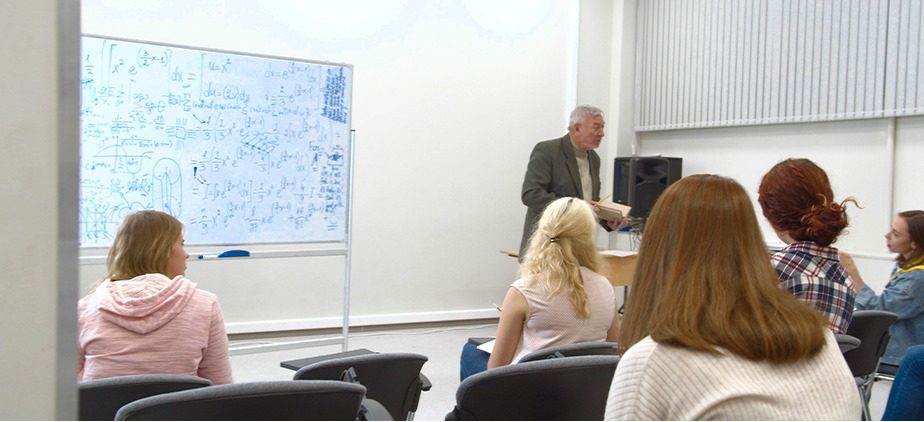

MBA Advisor
Once you submitted an application form or requested information about the online-MBA program in Creative Thinking, a specialised MBA advisor will contact you by phone or email to arrange fora telephone or Skype meeting if required. This meeting gives you the chance to ask any question about this unique program and explains the technicality and structure of the MBA-CT. The MBA advisor will explain all the admission, enrolment, study, and financial details, including various payment-plans, available to help you land on your best option. Our MBA advisors will take care of you tell your admission and enrolment process is completed.
Once you submitted an application form or requested information about the online-MBA program in Creative Thinking, a specialised MBA advisor will contact you by phone or email to arrange fora telephone or Skype meeting if required. This meeting gives you the chance to ask any question about this unique program and explains the technicality and structure of the MBA-CT. The MBA advisor will explain all the admission, enrolment, study, and financial details, including various payment-plans, available to help you land on your best option. Our MBA advisors will take care of you tell your admission and enrolment process is completed.
Program Manager
Once admitted to the program, your CCU program manager will guide you for the rest of your degree. Your program manager will be your primary reference during the program. You can contact him/her at any time with any questions, concerns, observations, or comments regarding your classes, modules, schedule, enrolment, attendance, and assessment. We made sure that our program managers are trained on the best level to deal with their tasks and help you make your time at CCU such a rewarding and productive experience.
Once admitted to the program, your CCU program manager will guide you for the rest of your degree. Your program manager will be your primary reference during the program. You can contact him/her at any time with any questions, concerns, observations, or comments regarding your classes, modules, schedule, enrolment, attendance, and assessment. We made sure that our program managers are trained on the best level to deal with their tasks and help you make your time at CCU such a rewarding and productive experience.


Technical Support
CCU is the land of futurists; we employ the best available IT techniques to connect our students to faculty around the world and the live lecturing hall. The Deanship of Academic SupportingServices (DSS) plays an essential role in ensuring that the best technical and administrative support is provided. At CCU, the Institute of Artificial Intelligence & Robotics (IAR) collaborates with the (DSS) and other departments in the University to offer CCU students the taste and structure of the digital age.
CCU is the land of futurists; we employ the best available IT techniques to connect our students to faculty around the world and the live lecturing hall. The Deanship of Academic SupportingServices (DSS) plays an essential role in ensuring that the best technical and administrative support is provided. At CCU, the Institute of Artificial Intelligence & Robotics (IAR) collaborates with the (DSS) and other departments in the University to offer CCU students the taste and structure of the digital age.
Why People Come to CCU?

The
World Class
CCU is an educational and research University that teaches students how to master the new world of change and manage the speed and the scale of the process. Our World-Class appeals to the new digital age needs and requirements, where diversity equals innovation - innovation equals wealth. We gather different thinking schools, research perspectives, and talented minds under one roof, and we ensure productive interaction.
CCU is an educational and research University that teaches students how to master the new world of change and manage the speed and the scale of the process. Our World-Class appeals to the new digital age needs and requirements, where diversity equals innovation - innovation equals wealth. We gather different thinking schools, research perspectives, and talented minds under one roof, and we ensure productive interaction.
CCU Curriculum
All academic programs at the Cambridge Corporate University are developed and taught by CCU faculty who are distinguished academicians, skilled educators, groundbreaking researchers, award-winning authors, and entrepreneurs in their respective fields. Representing various disciplines, they remain close to practice through relationships with business and industry leader sand personal involvement as board members and consultants for top companies worldwide. CCU faculty leverage their business expertise and field-based research to create new knowledge and enduring concepts that shape management practice. You will not be surprised to discover that our modules and curriculum are only available at the CCU campus and not offered anywhere else.
CCU programs' curriculum and modules are unique, innovative, stimulating, and live. It is only atCambridge Corporate University that you will enjoy the reality of experience and knowledge transfer, and you will link your every-week study, assignment, and curriculum to your business environment and activities.
Among the wealth of unique advantages that describe the CCU MBA curriculum, the fact that all modules were developed using the CCU innovation system, which is part of the CCU SUPERHUMAN philosophy of the future.
All academic programs at the Cambridge Corporate University are developed and taught by CCU faculty who are distinguished academicians, skilled educators, groundbreaking researchers, award-winning authors, and entrepreneurs in their respective fields. Representing various disciplines, they remain close to practice through relationships with business and industry leader sand personal involvement as board members and consultants for top companies worldwide. CCU faculty leverage their business expertise and field-based research to create new knowledge and enduring concepts that shape management practice. You will not be surprised to discover that our modules and curriculum are only available at the CCU campus and not offered anywhere else.
CCU programs' curriculum and modules are unique, innovative, stimulating, and live. It is only atCambridge Corporate University that you will enjoy the reality of experience and knowledge transfer, and you will link your every-week study, assignment, and curriculum to your business environment and activities.
Among the wealth of unique advantages that describe the CCU MBA curriculum, the fact that all modules were developed using the CCU innovation system, which is part of the CCU SUPERHUMAN philosophy of the future.
Program Key Objectives Include :
Upon completion of the Program, students will learn to:
For more information about the topics offered in the Program, please download the Program brochure.
Entry requirements
Applicants for the MBA in Digital Transformation are expected to have achieved or expect to achieve a high standard in a degree course of an equivalent level to a Swiss Bachelor's degree. In most countries, this is a first degree (Bachelor's, Licentiate, Vordiplom).
• Proficiency in English: participants should be able to produce well-structured work, summarise key points clearly and discuss issues in writing from different points of view.
• There are no formal limitations on the subjects that are studied for a first degree. Still, we would normally expect applicants to have a firm grounding in the sciences, social sciences, or humanities and have taken some courses of relevance to management studies.
For specific information about the entry requirements to the MBA-DT program, please write to theRegistrar Office at registrar@cambridgecu.ch
Applicants for the MBA in Digital Transformation are expected to have achieved or expect to achieve a high standard in a degree course of an equivalent level to a Swiss Bachelor's degree. In most countries, this is a first degree (Bachelor's, Licentiate, Vordiplom).
• Proficiency in English: participants should be able to produce well-structured work, summarise key points clearly and discuss issues in writing from different points of view.
• There are no formal limitations on the subjects that are studied for a first degree. Still, we would normally expect applicants to have a firm grounding in the sciences, social sciences, or humanities and have taken some courses of relevance to management studies.
For specific information about the entry requirements to the MBA-DT program, please write to theRegistrar Office at registrar@cambridgecu.ch
Program Fee
• The tuition fee for the Online MBA program in Creative Thinking at Cambridge CorporateUniversity is CHF26,000 (Only twenty-six thousand Swiss francs) including all study materials, case studies, software, etc.
• Payment plans are available in different models based on the approval of the admission and registration office.
• Registration fee of CHF150 ( Only one hundred and fifty Swiss francs) is applicable at the application time.
The program fee doesn't include housing or an accommodation fee.
For more details about the MBA Program in Digital Transformation, to receive the program brochure and application, please write to the MBA Office at
MBA@cambridgecu.ch
• The tuition fee for the Online MBA program in Creative Thinking at Cambridge CorporateUniversity is CHF26,000 (Only twenty-six thousand Swiss francs) including all study materials, case studies, software, etc.
• Payment plans are available in different models based on the approval of the admission and registration office.
• Registration fee of CHF150 ( Only one hundred and fifty Swiss francs) is applicable at the application time.
The program fee doesn't include housing or an accommodation fee.
For more details about the MBA Program in Digital Transformation, to receive the program brochure and application, please write to the MBA Office at
MBA@cambridgecu.ch
How to apply
Applications for admission to the program should be made to the Cambridge Corporate UniversitySwitzerland's Admission Office using the online application form or via writing to the RegistrarOffice at registrar@cambridgecu.ch.
In addition to the application form, applicants need to arrange for the following documents to be sent to the CCU Registrar Office via email:
Copy of the applicant's CV.
Copy of the applicant's valid passport or ID.
Copy of the applicant's most recent degree, diploma, or certificate.
One digital picture high-resolution formal photo is required for the Completed MBA application.
MBA-Essay Statement (MES), in a maximum of 750 words, please describe why you are interested in being enrolled in the MBA-DT program at Cambridge Corporate University and how it will reflect your professional life career.
Payment confirmation of the application fee.
If the applicant cannot demonstrate fluency in the English language, an IELTS or TOEFL test report will also be required.
All the application forms, documents, and attachments should be sent via email to
registrar@cambridgecu.ch

Cambridge Corporate University
128 City Road, London, United Kingdom,
16192 Coastal Highway, Sussex, United States,
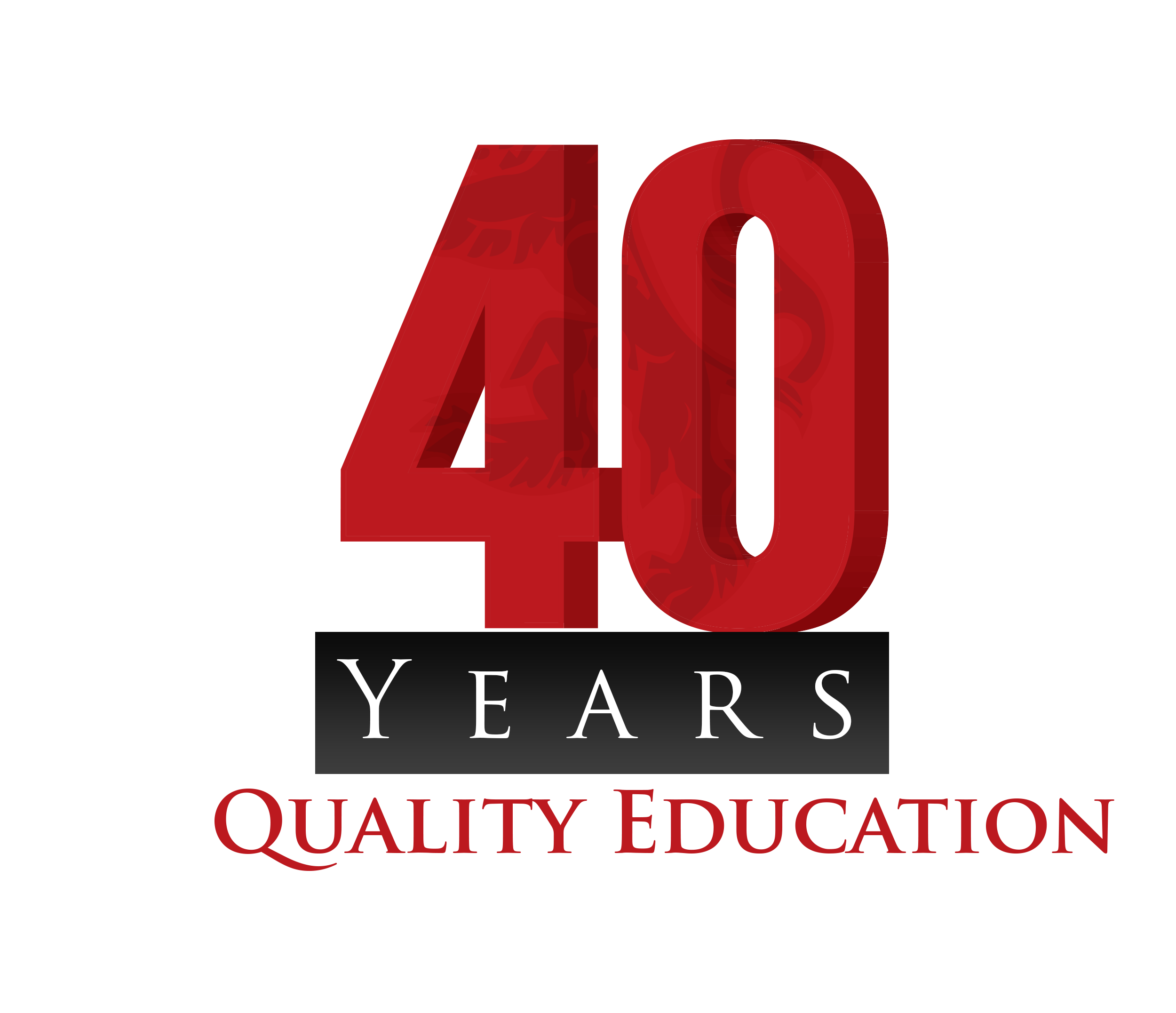
Site Map Jobs Policies Trademarks Investors relations contact us Copyright
All rights reserved © 2021 By the President & Fellows of the Cambridge Corporate University